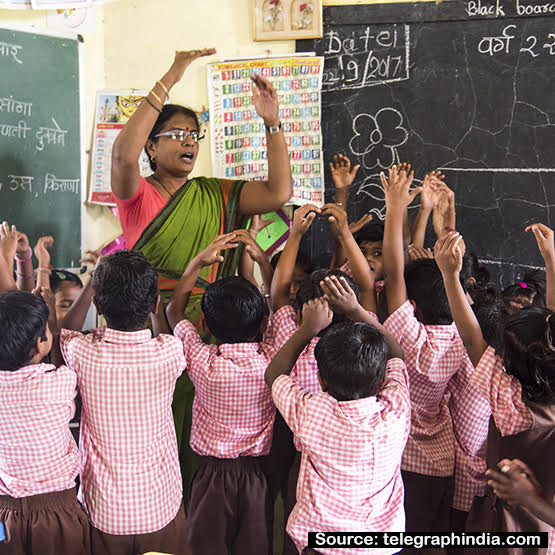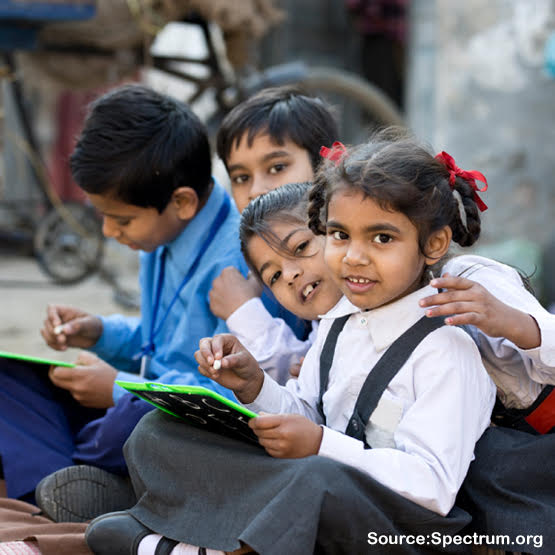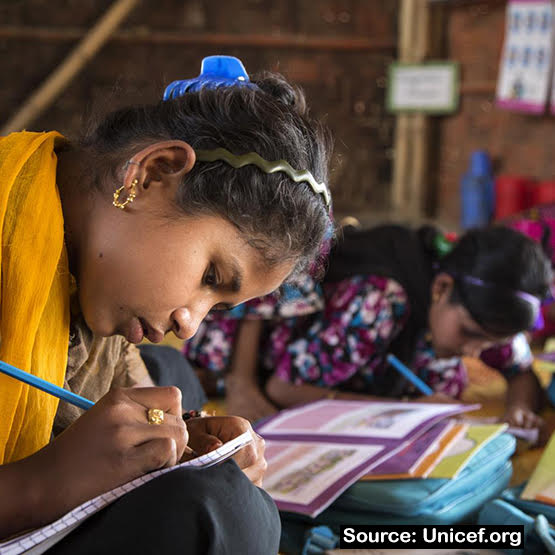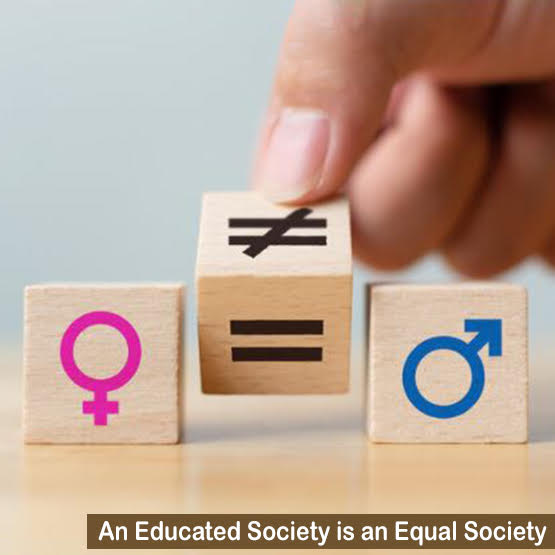Socialization is a universal and continuous process that begins with the birth of an individual till their death. It refers to an ongoing process of learning the expected behaviours, values, norms, and social skills of individuals who occupy particular roles in society. Characteristics of the school, teachers, and peers all influence the socialization of children within school settings. Schools are one of the most important agents of socialization that build the foundation of an individual's character. School is the first social environment that a child is exposed to after their family and peers. Many children start their academic journey from the age of four.
The most significant function of a school is to impart education and skills to the students. Students learn the ability to convert this knowledge into thinking and behavioural patterns. Educational institutions should foster the overall development of a child. What a student learns in school stays with an individual for the longest period in their lives. Thus, it is necessary to instill the right moral and educational values in students to equip them with a set of social skills for further decision-making.

Equality is a constitutionally guaranteed right for every citizen of India. Article 14 of the Indian constitution states that: “The State shall not deny to any person equality before the law or the equal protection of the laws within the territory of India.” This means that every person, who lives within the territory of India, has equal rights before the law. Despite this, Indian citizens are discriminated against based on gender, caste, class, skin colour, among others. Indian women have been fighting for equality for many decades. Little girls are denied education in many rural and some urban parts of the country. Social evils like female foeticide and accepting dowry still exist.
According to The Unified District Information System for Education Plus 2019-’20 report, a little over 15% of girls drop out at the national level. The reasons for girls dropping out in rural India are varied. Girls drop out of school because, one, they are engaged in domestic activities (31.9 percent), two, they have financial constraints (18.4 percent), three, they are not interested in education (15.3 percent), and four, they get married (12.4 percent). It is estimated that over one crore girls are on the verge of dropping out of schools due to the pandemic alone.
If from a young age, girls, as well as boys, are taught the importance of equality and the need to fight against patriarchy, the country will benefit from it further.
Here are some ways schools could encourage gender equality among students.
-
Using Gender-Neutral Language

As a faculty member, a teacher should use gender-neutral language when referring to children. For instance, instead of saying, "Choose a boy to go with you" one can say, "Choose a friend to go with you." Similarly, organizing children in groups according to gender should be avoided. Like, when going on field trips or when sitting in classrooms, boys and girls should be encouraged and allowed to sit together. This practice will help them understand the opposite gender better. Dividing students into gender-based groups only reinforces gender segregation. Mix costumes and art supplies for younger students rather than dividing them into sections for boys and girls. This will enable students to express themselves creatively without anxiety about adhering to traditional gender roles. -
Self-regulate your interaction with the children
Pay attention to the trends above and do your best to offer more gender-neutral responses to students. To promote girls and boys equally in co-educational settings, teachers have to reflect on their gender stereotypes. Moreover, they require knowledge about gender discrimination in education and about teaching methods to foster the motivation of all students regardless of their gender.
-
Avoid stereotyping children
Stereotyping can have many negative consequences in society. This phenomenon should be avoided especially in schools. Teachers can manage the assumed biases that permeate their classrooms, ensuring everyone is treated with respect, dignity and care. -
Be a positive role model
Young children and students tend to learn through imitation. Make your behaviour a role model for others to follow. Teachers should ensure that they behave well with their colleagues of the opposite as well as the same genders. Talking respectfully and without any discrimination to each student will facilitate good manners in the children as well. Students should be encouraged to read books about influential women they can emulate as their role models. Gender equality should be included in examples and class discussions. Stories are a much more effective way to get the message across to children of all ages. -
Include Gender Equality in Your Curriculum
Projects are a great way to explore concepts in and around gender and cultural equity. By working in select spaces and communities one can nurture the growth of healthy human interdependence. Many textbooks do not include many notable female figures, tokenize the experiences of women, and stereotype gender roles in harmful ways. Schools should include textbooks that include gender equality in their content. Educational institutes could try to increase their curriculum by teaching their students about both men and women who challenged their society’s ideas about gender and changed their communities in meaningful ways. It can also be helpful to include gender non-conforming and transgender people in the curriculum to help students with these identities feel represented and accepted.

Child Help Foundation (CHF) is working towards creating an equal platform for both boys and girls in the community. Our goal is to promote the education of the girl child. Our Gender Equality Program is aligned with the National Program ‘Beti Padhao, Beti Bachao’. Our grassroots level programs are eliminating gender biases and creating a level playing field for both boys and girls. We believe that women need to be empowered to stand up for their Fundamental as well as Human Rights.
